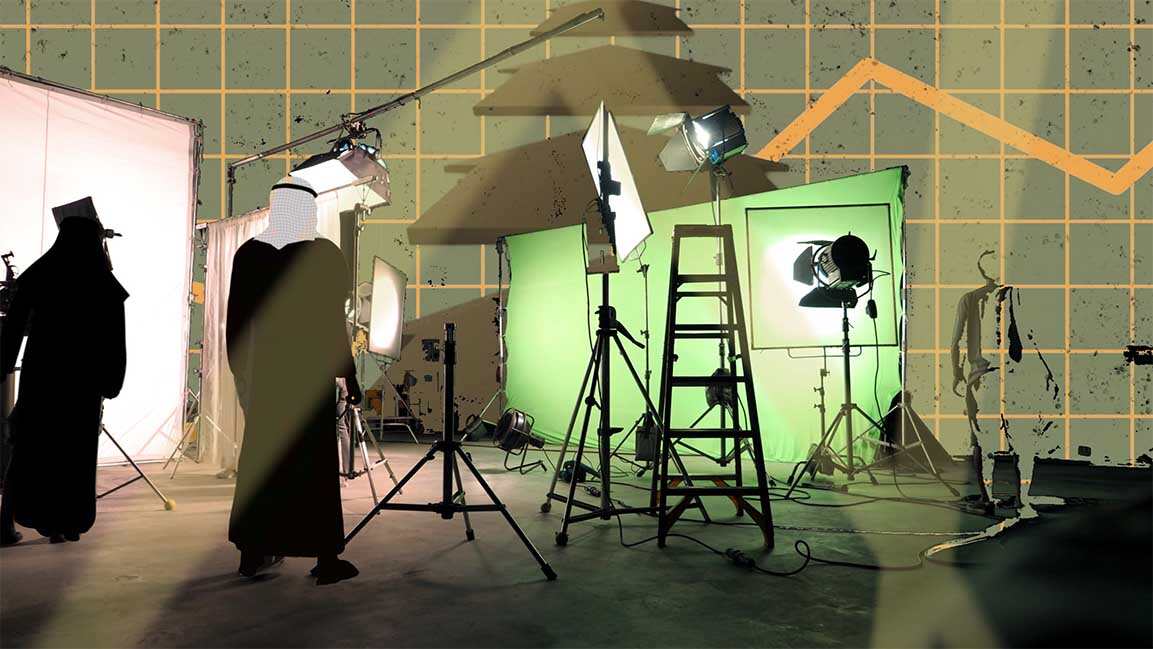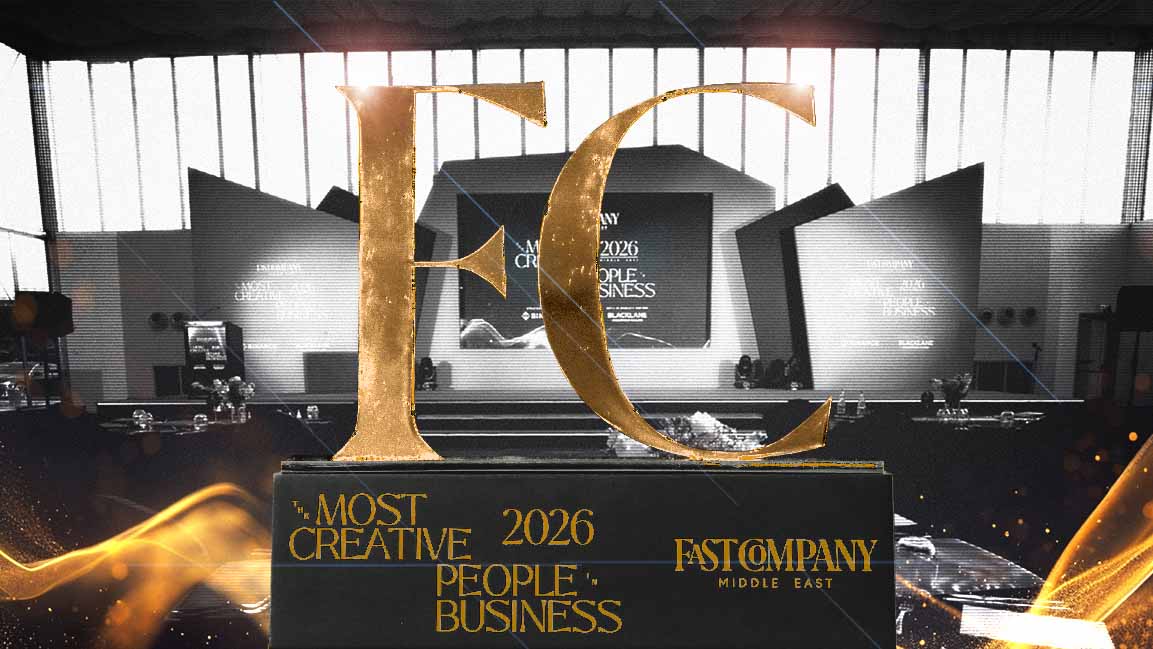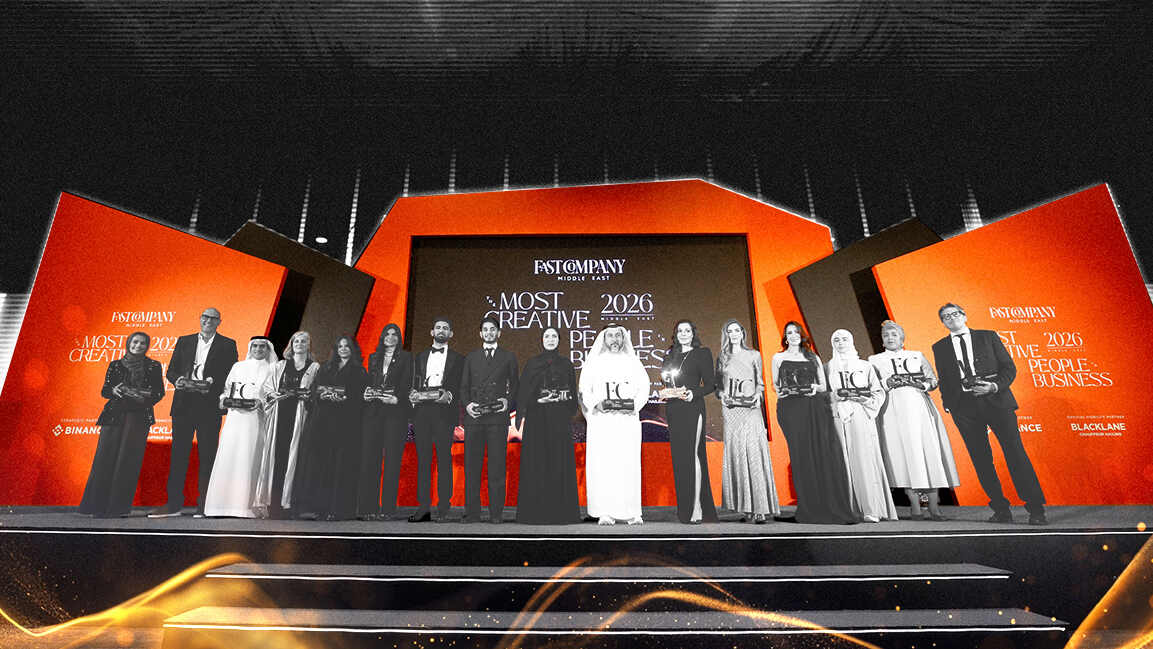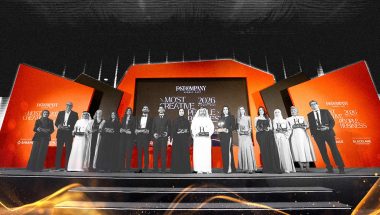- | 9:00 am
Can the film industry be the ‘new oil’ for Saudi Arabia?
The cinematic growth is spurred on by the organic development of a new market, explosion of investment, and box-office takings.

Four years ago, when the first movie, blockbuster Black Panther—a film about a young monarch of a fictional African jungle kingdom—was screened in Saudi Arabia after over 35 years, many drew parallels with the reformist crown prince Mohammed bin Salman.
The move to reopen cinemas was part of his modernization drive, and if the revenues are anything to go by, the policy shift has been a success. Since cinemas officially reopened, box office sales have exceeded 30.8 million tickets.
The cinematic growth is spurred on by the organic development of a new market, explosion of investment, and box-office takings.
International theater chains that have long eyed the kingdom as the Middle East’s last untapped mass market—the majority of Saudi Arabia’s 30 million people are under 25—are seeing growth. In 2021, Saudi Arabia’s box office reached approximately $238 million, according to figures from Comscore.
According to a PwC report, the reopening of cinemas was “unlocking an untapped and lucrative economic opportunity.” With Saudi Arabia’s population forecast to be over 39 million by 2030, the kingdom has the potential to absorb up to 2,600 screens.
CREATED DEMAND FOR LOCAL CONTENT
“The opening of the Saudi box office market has created a demand for more Saudi and regional content as well as the production of more regional films,” says Butheina Kazim, owner of Cinema Akil, an independent cinema platform in the Middle East.
“The opening of cinema houses plays a crucial role in creating the film ecosystem. However, there is a multi-pronged national strategy for development led by investment in the entertainment and cultural sectors. By default, this will contribute to a larger transformation and impact on the entertainment sector in Saudi Arabia.”
It’s a familiar sentiment among those in the industry. “There’s a huge potential in the Saudi film market and establishing a proper film industry which needs a longer time to have solid results. It’s like discovering the oil now in Saudi Arabia but for the film and entertainment business,” says Alaa Karkouti, CEO and co-founder of MAD Solutions and the Arab Cinema Center.
Collaborations in cinema and entertainment are expected to play a crucial role in developing the Saudi Arabia film industry. The Ministry of Culture established its dedicated Film Commission to help transform the film industry into a major economic driver. The commission supports young creative talent, defines the laws and regulations, and represents the kingdom in regional and international forums related to films.
“We have seen quite a few partnerships with international corporations and talents take place in Saudi. These are made in various ways and support filmmakers in areas like co-productions, workshops, training, and even long-term projects,” says Sara Mesfer, known for the omnibus film Becoming, which shows how far the Saudi film industry has come in supporting female filmmakers.
Netflix partnered with Saudi Arabian production group Telfaz11, known for innovative and powerful storytelling and influencing pop culture in the kingdom. The streaming giant recently released New Saudi Voices—a collection of short films by up-and-coming Saudi filmmakers.
“It’s a deal that will create a sort of bedrock as a reference point of what the cinema industry will look like,” says Kazim. “Independent cinemas will come in alongside the massive productions being funded and spearheaded primarily through the entertainment-driven production agendas.”
“It is interesting to follow the larger box office trends of what is working in cinemas now. There is a lot more appetite in Saudi to produce certain films that would usually be cut out of the distribution cycle available on a massive scale across different screens.”
This includes films such as The Alleys by Bassel Ghandour or, The Man Who Sold His Skin by Kaouther Ben Hania. These independent films that usually would not get huge theatrical windows are now being tested in the Saudi market.
“There is a lot of room for experimentation, a lot of talent, and hunger for various types of storytelling,” adds Kazim.
INVESTMENTS IN MULTIPLEXES
Much of the remarkable box-office success is due to the huge investments the kingdom has seen in the form of multiplex cinemas.
Armed with an investment budget of over $260 million, Development Investment Entertainment Company (DIEC) is acting as a catalyst in the development of the cinema sector in Saudi Arabia. It aims to open 50-100 cinemas across Saudi Arabia by 2030.
Alongside DIEC, VOX plans to invest $533 million to open 600 screens across the kingdom. It’s an industry worth around $1.2 billion.
“The main challenge is to create an interest first with the Saudi people to explore working in film and entertainment. To deal with it as a serious job, find the right talents. This is a normal process for a country that didn’t have almost any history in films,” Karkouti adds.
Last year, presenting it as a moment of change for a country, Saudi Arabia opened its first international film festival, the Red Sea Festival, which attracted international stars including Hilary Swank, Clive Owen, and Vincent Cassel.
“Events like the Red Sea Film Festival are certainly helping the growth of the film industry in Saudi Arabia,” says Mesfer. “The festival not only showcases films that local filmmakers eagerly wait to screen in their country but also is a foundation that funds shorts and feature films.”
At the festival, a filmmaker can submit a script in a competition to raise funds, which Mesfer says encourages and helps them to produce films and provides a platform to showcase them. “What’s even more powerful about this festival is that it is for all regional filmmakers, not only local ones.”
Arab cinema has been largely reliant on festival exposure until now, but things are changing now in the distribution system.
Karkouti says it has changed dramatically in the last ten years. “When I started MAD Solutions in 2010 with my partner Maher Diab, there was zero space for non-Egyptian non-Hollywood films in the market. In 2022, we helped more than 350 Arab films—features and shorts—to be on all platforms, many of them released in theaters.”
Recently, after earning critical acclaim and praise following screenings at film festivals worldwide, Jordanian films – Daughters of Abdelrahman and The Alleys were released in the kingdom.
“There’s a big change, but it’s random. Egypt is the only established regular industry in the Arab world for films, but the rest of the Arab countries are based on individual efforts. That’s why many Arab films count more on the international funds and festival exposure,” says Karkouti.
HUB FOR INTERNATIONAL AND LOCAL PRODUCTIONS
Having welcomed the two biggest films in the country’s history – Kandahar and Desert Warrior— the government has plans to become a significant player in international and local productions. “This will be clear in the coming few years to be a regular destination for international production. Saudi Arabia is ready to do that; it needs some case studies to attract faster, especially with NEOM, which will change this even faster,” says Karkouti.
With scenic landscapes, dunes, desert oases, rocky outcrops, and ancient ruins, the Royal Commission for AlUla launched its film and TV promotional arm, Film AlUla, that promotes filming in the historical region and provides an ecosystem to support productions.
Other bodies that support the film in the kingdom include the Misk Foundation, established by the crown prince to empower Saudi youth and support the social transformation of Saudi Arabia. Misk runs a screenwriting program, among other initiatives, to help filmmakers.
Last November, Saudi authorities announced investments totaling $64 billion in the entertainment industry to become the region’s leading destination for movies.
“For international production, it will be an ideal location in terms of rebate and locations and lower costs. Arab production can be the same for TV series, but for films, it’s different as there’s rarely a big budget,” says Karkouti.
“What Saudi Arabia is offering for now is a lot of benefits besides the rebate. They are smart enough to know that doing this will benefit the country: it will make more people visit Saudi Arabia, help spread the film and entertainment scene across demographics, and generate new income.”
The Saudi film industry has expanded in tandem with the kingdom’s rapid strides in entertainment. In the past few years, young filmmakers have returned to the country after years of working abroad to reap the benefits of the kingdom’s investments in entertainment.
While the emerging film industry is filled with opportunities, there are a lot of challenges at the same time, says Mesfer. “We still lack the resources to produce a film, from film crew to talent and post-production. We also need more film investors and fund institutions to support the production of films.”
“A great start would be to have more cinema schools around the kingdom aside from the cinema degree available at Effat University in Jeddah,” she adds.
Despite these challenges, there’s a great opportunity to join and develop the film industry and create a space for all genres-– from independent to commercial films.
“Filmmakers have a higher chance to be part of the industry and have the ability to be part of the formation and shaping of our unique voice in storytelling while creating our style,” says Mesfer.







































